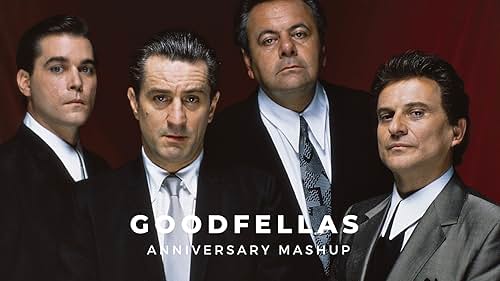Goodfellas (1990)

“Goodfellas” (1990) is a landmark film in the crime genre, directed by Martin Scorsese and based on the true story of Henry Hill’s life in the mob. The film is widely regarded as one of the greatest of all time, and here’s a comprehensive review:
Plot and Characters
“Goodfellas” chronicles the rise and fall of Henry Hill (Ray Liotta), from his teenage years in the mob through his involvement in organized crime until his eventual decision to testify against his former associates. The narrative is driven by Hill’s experiences and the impact of his criminal lifestyle on his personal life.
- Henry Hill (Ray Liotta): Liotta delivers a compelling performance as Hill, capturing the charm and volatility of a man caught between loyalty and self-preservation.
- James Conway (Robert De Niro): De Niro’s portrayal of the charismatic and ruthless mobster is central to the film. Conway is both a mentor and a menacing figure, embodying the dangerous allure of organized crime.
- Tommy DeVito (Joe Pesci): Pesci’s portrayal of the hot-headed and unpredictable Tommy earned him an Academy Award for Best Supporting Actor. His performance is intense and explosive, adding a significant edge to the film.
- Karen Hill (Lorraine Bracco): Bracco’s role as Henry’s wife provides a critical perspective on the personal costs of a life in crime. Her character adds depth and emotional weight to the narrative.

Direction and Style
Martin Scorsese’s direction is both energetic and meticulous, capturing the gritty reality of mob life with an unparalleled level of detail and authenticity.
- Cinematography: The film’s cinematography, by Michael Ballhaus, is dynamic, with long tracking shots and a vibrant, immersive style. The famous Copacabana Club sequence, featuring a single continuous shot following Henry and Karen through the kitchen, is a standout example.
- Editing: The film’s fast-paced editing, executed by Thelma Schoonmaker, complements its narrative style, blending real-time action with voice-over narration and a non-linear structure that mirrors Henry’s chaotic life.
- Soundtrack: The eclectic soundtrack, featuring songs from various eras, adds to the film’s authenticity and helps set the tone for different scenes.

Themes and Legacy
“Goodfellas” explores themes of power, loyalty, and the allure of the criminal lifestyle. It offers a raw and unromanticized view of organized crime, focusing on the personal and moral costs of living a life of crime.
- Realism: The film is renowned for its realistic portrayal of mob life, grounded in Hill’s real experiences and Scorsese’s meticulous research. It avoids the glamorization often seen in other gangster films, presenting a more nuanced and often brutal depiction.
- Influence: “Goodfellas” has had a profound impact on both the crime genre and filmmaking in general. Its style, narrative techniques, and character portrayals have influenced numerous films and directors.

Pros and Cons
Pros:
- Powerful performances, particularly by Joe Pesci and Robert De Niro.
- Scorsese’s expert direction and storytelling.
- Dynamic cinematography and editing.
- Authentic depiction of organized crime and its consequences.
Cons:
- The film’s graphic violence and explicit content may be off-putting for some viewers.
- Its non-linear narrative and fast pace might be challenging for those preferring more traditional storytelling methods.
Overall, “Goodfellas” is a cinematic tour de force, showcasing Martin Scorsese’s mastery of the crime genre and storytelling. Its vivid portrayal of mob life, combined with stellar performances and innovative filmmaking techniques, makes it a seminal work in the history of cinema.











